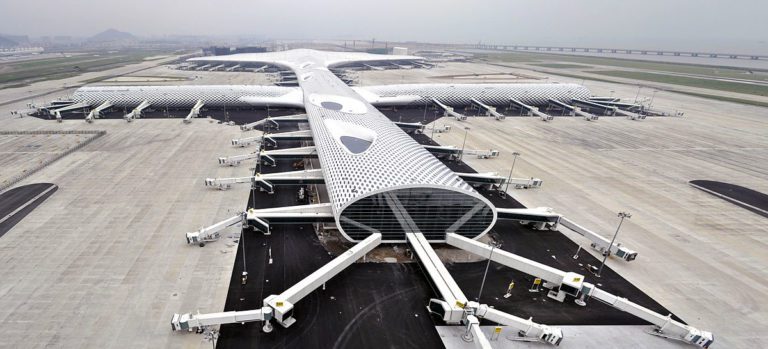They have a saying in China: “If you wish to see the country's past, head to Beijing. If you wish to see China's present, head to Shanghai. But if you wish to see China's future, you must head to Shenzhen.”
Shenzhen at night
Shenzhen (深圳) used to be a city known for flash flooding – drowning those unfamiliar with the lay of the land. Nowadays, Shenzhen is flooded with a different element- technology. And it's residents are far from naive.
It was estimated that 20% of China's PhDs have worked in Shenzhen. Shenzhen is also home to some of the biggest and most successful companies in the world. BGI, BYD, ZTE, Huawei and Tencent are some of its success stories and contributors to the "Shenzhen Miracle.”
Silicon Valley might be the preeminent destination for tech. However, Shenzhen is not far behind. It holds its own as a global tech hub on the other side of the world. And the driving force that solidified Silicon Valley's status as a tech hub is equally felt in Shenzhen.
Ariel view of Silicon Valley
Silicon Valley owes its success to open-source. Open-source allows other people to freely improve your product or to use it in their own products (under a license of course). It is a model that emphasizes collaboration over individual or corporate monopolies. Wikipedia, probably the biggest online encyclopedia, is an open-source project. As is Linux and Apache – software which allows companies like Google and Amazon to host their websites across many servers. The open-source Android OS, is completely free. You are also free to make changes to it or to use it to make apps like Uber, Tinder or Facebook. So if you ever used an app on an Android phone, you are a beneficiary of open-source technology!
Android OS – one of the most popular mobile OS in the world
Linux OS – it remains a popular server OS till this day
Wikipedia – the largest online encyclopedia, and a completely open-source project
But for all of open-source's achievements, the concept remains reviled in the U.S. Tech leaders such as SAP’s Shai Agassi has called open-source “intellectual property socialism.” Microsoft founder Bill Gates also reportedly called open-source advocates a "new modern-day sort of communists.”
Bill Gates, one of the cofounders of Microsoft and the second richest man in the world
He might just be right.
In China, open-source enjoys a much better reputation. The concept is often referred to as shanzhai (山寨;shānzhài meaning “mountain stronghold”). It is a romantic term. Historically, it was used to describe outlaws who took refuge in the mountains to hide from corrupt leaders. In practice though, shanzhai usually refers to the knock-offs and IP infringement practices that has made China infamous. Shanzhai reflects an open culture and emphasizes collaboration, as well as a certain disregard for intellectual property.
Shanzhai Vitamin Water
Shenzhen's shanzhai culture has reached a point where the copied goods are leagues ahead of the original. Why buy an iPhone when you can assemble one yourself at a fraction of the price? What's more, you can even build an upgraded model of the phone yourself. Many stores in Shenzhen allow you to add a dual SIM card option to your new phone – a feature many iPhone models don't include. This practice has also led to the creation of a new kind of Chinese company, one that is able to eventually outperform international brands. Talk about “fake it till you make it”!
An "iPhone" found on the streets of Shenzhen. Many come will additional features and are entirely customizatble to your specifications
The shanzhai business model has also built a community of tinkerers and builders in the spirit of the original Silicon Valley pioneers. They tinker, experiment and adapt a product to their customer's specifications, usually within a matter of weeks. Contrast that to making a product in the U.S., where it can sometimes take up to a year.
Shenzhen's electronics stores
It is for this reason that Shenzhen has earned the moniker "The Silicon Valley of Hardware.” But as we have seen from Silicon Valley's own humble origin as a silicon manufacturing hub, it rarely stops at hardware. With Shenzhen, there is no knowing how deep this drain goes.
[zombify_post]


0 Comments